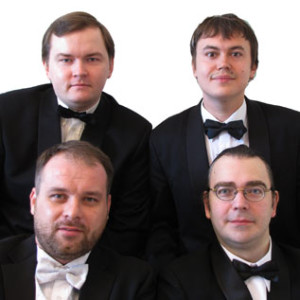
Inspired by Rublev’s Icon of the Holy Trinity, and the writing of Richard Rohr, this image of the Dance Trinity was mounted on the East wall of our nave during the Lent and Easter seasons, 2017. Design by Laura Bermes.

Inspired by Rublev’s Icon of the Holy Trinity, and the writing of Richard Rohr, this image of the Dance Trinity was mounted on the East wall of our nave during the Lent and Easter seasons, 2017. Design by Laura Bermes.
A new cohort of students will begin the two-year Confirmation Program in the fall. Like to know more? Ask Nicole.
Saturday, May 13, 9:00AM – 4:00PM
Women’s Retreat at The Ballymena, 7124 47th Ave SW, West Seattle
Just one day, close to home, and timely!—that’s the 2017 Peace Women’s Retreat.
Beginning with a sumptuous brunch at 9 am, Saturday, May 13 (the day before Mother’s Day), women –young, old, and in between– will consider together how to find strength and hope in challenging times. Along the way we’ll sing, pray, and play. If you like, join fellow walkers for a pre-brunch 7:30 am walk in nearby Lincoln Park.
Registration deadline is May 5th. For a brochure, to volunteer, to assist the ad hoc planning group, or to have your questions answered, contact Marian Christjaener, mchristjaener@gmail.com; Boots Winterstein, paulwinterstein@q.com or 206-762-1362. See you May 13 at The Ballymena!
The retreat planning group: Marian Christjaener, Dana Rice, Floie Vane, Boots Winterstein, Audrey Zemke.
 The Russians Return! St. Petersburg Men’s Ensemble @ Peace June 7
The Russians Return! St. Petersburg Men’s Ensemble @ Peace June 7
Peace will host a special concert of the St. Petersburg Men’s Ensemble on Wednesday, June 7 @ 7:00p.m. The concert is free and open to the public—please help us get the word out. The St. Petersburg Men’s Ensemble, which includes the talents of Kirill Sokolov, Sergey Shapinsky, Vadim Smanster, and Andrei Volikov, has been performing in churches and concert halls throughout the United States since 2002. Their concerts reflect their culture and heritage, with a balance of sacred songs by Russian composers and Russian folk songs. The members of the St. Petersburg Men’s Ensemble bring extensive training and experience to the presentation of their concert selections. They have sung with many choirs including the State Academic Capella and the Choir of Smolny Cathedral. A free-will offering will be received to support their U.S. Tour.
All generations are invited to join us on Sunday, April 23 @ 9:15am for a simple breakfast followed by work together to create fleece tie-quilts for Lutheran World Relief. There’s no sewing involved, just a lot of fun and the opportunity to interact with one another.
Funding for this opportunity is supported through Thrivent’s “ACTION TEAM” Program. Join the Easter joy!
The Peace Choir will perform the choral cantata HOPE IN THE SHADOWS by Joey Raney & Lloyd Larson on Palm/Passion Sunday, April 9, as part of Sunday worship. The service begins with the Liturgy of Palms at 10:30am, followed by the Cantata and Holy Communion.
From March 8 – April 5 we host a series of five Wednesday Evening Gatherings for a simple SOUP SUPPER at 6:00 pm, followed by a service of EVENING PRAYER at 7:00 pm. These five evenings are times to slow the pace, enjoy fellowship over a simple meal, and open ourselves to a fresh encounter with God’s Word. Offerings received will support our AGAPE FUND, reaching out to people in our community who are in desperate need.
Our theme for the Lenten Wednesday Services during this 500 anniversary year of the Reformation is Luther’s Small Catechism.